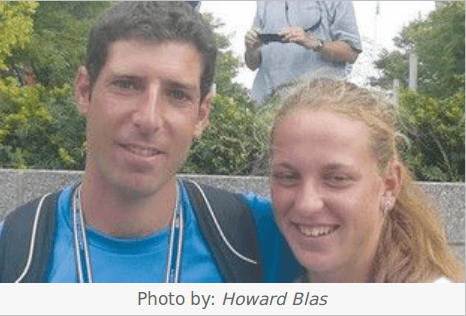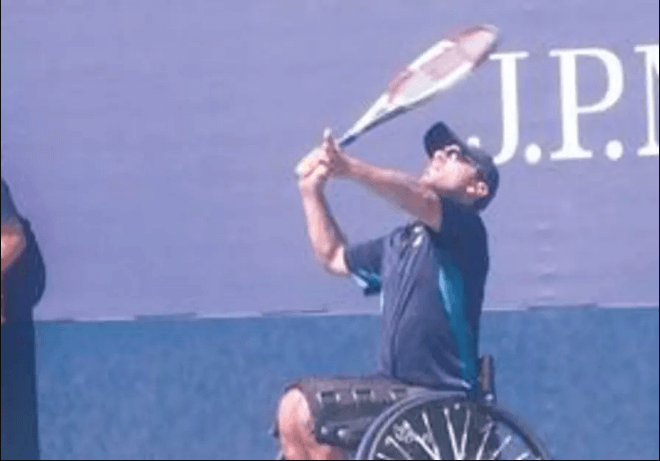Original Article Published on the BabagaNewz
This unique Tel Aviv restaurant is committed to helping kids at risk turn their lives around.
Israeli restaurants are often known for their delicious hummus, mouth-watering kebabs, and colorful Israeli salads. One Tel Aviv restaurant, however, is also known for its unique staff. That’s because every year Liliyot Restaurant and Bakery, in partnership with ELEM, the Israeli organization for youth at risk, trains and employs 15 young adults with some of the most difficult backgrounds and family situations in Israel.
-I used to walk the streets drinking brandy, reveals Mor*. It’s easy to get lost, to disappear from the world.
-At 15, I ran away from home and wandered around Israel with a group of friends, reports Gal*.
-My mother married young to a drug addict. My childhood was spent visiting her in jail.
-I lacked everything. There were long periods when I went hungry; there were days at a time when I wandered the streets and didn’t return home.
Just over ten years ago, Karen Kremmerman, an American-born, Tel Aviv restaurant owner and ELEM volunteer, came up with a novel way to help these teens out of their tragic circumstances. She offered her restaurant, near Tel Aviv’s upscale Sderot Rothschild, to be part of an experimental program which would offer hope, inspiration, and training in the culinary arts to high school drop-outs and other youth in distress. As an ELEM volunteer, she was painfully aware that more than 200,000 youth in Israel between the ages of 12 and 18 experience ongoing difficulties which include alienation, vagrancy, drug and alcohol use, sexual abuse, school problems, and family issues.

ELEM, through more than 40 programs, reaches out to troubled kids of all ages and backgrounds. Those who are fortunate enough to receive training at Liliyot spend up to a year and a half learning to cook, bake, serve, and bartend. A full-time social worker supervises the program participants, and they receive guidance and advice from the chef. They also participate in workshops with guest chefs, hear lectures, and take trips to local produce markets, ice cream factories, and sweets import companies.
Inbar Palmor, an ELEM social worker in the early years of the Liliyot restaurant program observed, This is a unique program because here we have a real restaurant. This is a real-life setting. There is no room for playing around!
Some program participants concede that the process of learning, growing, and changing their lives around is a big challenge. It wasn’t always easy getting out of bed. I was tired after a few hours on the job. It was hard to change my attitude and habits, notes one trainee.
Lily Misgav, social worker and director of the Liliyot project for the past four years, observes that the program participants generally begin their training feeling “full of failures in life their parents are used to hearing only bad news and to feeling disappointed. As a result of their training, Misgav proudly reports, Many feel successful and worthy for the first time in their lives. Their self-confidence increases, and it influences all areas of their lives their parents now believe in them. They now have a profession, money, and independence.
Liliyot’s trainees look back fondly on their experience and speak openly about the positive changes they see in themselves:
-I liked the pleasant atmosphere and the chef was very nice they talk to you politely and respectfully not like in other places!
-This place taught me right from wrong and I can no longer ignore difficult, complicated problems. And the schooling really opened my eyes.
-Here I feel like I am part of a team and that I belong. This place was a home for me!
-It feels like family here. The chef sits with you at eye level and really talks with you.
-I always had responsibility for the kitchen they were relying on us. I’m the only one with a key to the restaurant; I’d open in the morning.
-I had a stable, safe place here!

Revital Halperin, one of the current owners, notes that the trainees receive not just a job with a salary, but a profession for life. Many go on to become cooks, sous chefs, or chefs in restaurants and hotels. Those who don’t are still success stories many enter the army, and most stay out of trouble, stay away from drugs, and they find their way.
A 2008 study of the program’s graduates by Bar Ilan University Professor Aharon York supports Halperin’s observations. York’s study indicates significant improvement in participants circumstances as a result of the training they received at Liliyot. Most of them became independent, useful citizens, and half of them even succeeded in finding placement in the leading restaurants on Israel’s culinary map.
Halperin describes the magic of Liliyot when she notes, There is something in the kitchen even though it is very hot and stressful it is also calming. There is soul, and there is discipline. When you enter the kitchen, you forget all your problems. They get recognized for what they do with their own hands they forget all their problems and concentrate on success.
Perhaps Halperin speaks for the trainees, chefs, social workers, partners, and ELEM when she says enthusiastically, We all love what we do here!
*Names have been changed to protect privacy.



